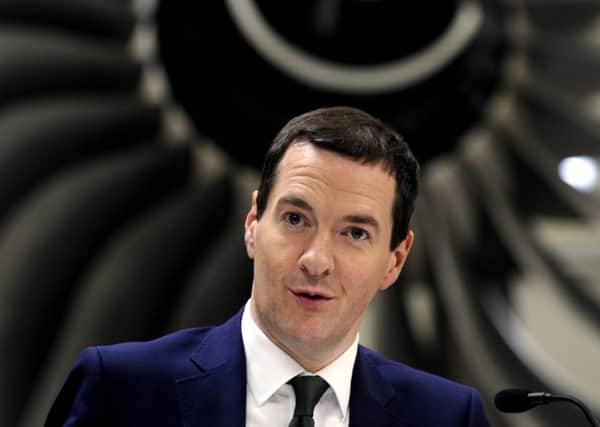Ed Cox: Turning Northern Powerhouse rhetoric into reality


It was an important rallying cry before the May general election as George Osborne successfully stole a march on his political adversaries, but it has endured ever since with devolution deals, high-profile visits to and from China, Transport for the North, and the Cities and Local Government Devolution Bill.
Of course there are those that consider it to be all froth: reannouncement after reannouncement of transport funding we were going to get anyway; opportunistic interference with local politics to destabilise Labour’s stronghold on northern cities. Lord Prescott claimed it was his old Northern Way idea rehashed and reheated. Even the BBC got in on the criticism with a survey claiming two thirds of Northerners had never heard of it.
Advertisement
Hide AdAdvertisement
Hide AdBut what the BBC headline failed to appreciate is the fact that if a third of the population had heard of it then that’s probably 10 times more than almost any other Government programme. For Ministers Osborne, O’Neill, Wharton and Clark, that’s an unequivocal success.
In 2016, though, the progress of the Powerhouse will not be judged by public recognition of the brand, it will judged by wages, skills and spades in the ground.
I say wages, rather than jobs, because the North – and Yorkshire in particular – has been rather good at generating new jobs in recent years. Long may that continue. But the evidence is growing of underemployment (people working fewer hours than they’d like to) in menial, low wage pursuits that do little to boost the economy and can be seen as a drain on our productivity.
If the Powerhouse is to become a success, we need to be generating better jobs, driving up productivity – even in sectors such as retail, hospitality and social care – and then paying people the Living Wage and more.
Advertisement
Hide AdAdvertisement
Hide AdAnd prosperity needs to be spread. The focus on big cities has been another important feature of the Northern Powerhouse narrative and places like Leeds, Sheffield and Manchester are right to be congratulated for their leadership.
But 2016 will see the publication of a number of studies showing that the big city model is flawed unless the cities give proper recognition to their symbiotic relationship with the smaller towns and rural economies upon which depend.
The model of urban growth in many European nations is all about the connectivity between places. There is little point recreating the over-heated, over-fed beast that is the London economy in Leeds or Manchester. As well as offering a counter-weight to London, rebalancing must also offer a counter-narrative to its dysfunctional economy.
But what holds back the Northern economy more than any slow train ride or congested motorway is our inability to nurture, to attract and to retain talent. This should be our number one priority in 2016.
Advertisement
Hide AdAdvertisement
Hide AdLocal Enterprise Partnerships need to show what they can do with the few powers that the Government has devolved. Businesses need to stop demanding skills on a plate and serve up better on-the-job training themselves.
Work programme providers must stop parking those furthest from jobs and pull together with local agencies to give joined-up support to the long-term unemployed. And we need to welcome many more migrants, too, with a visa system that can be flexed according to the employment needs of different sectors and different places.
But perhaps the biggest push needs to be with our youngest children. Of all the North-South divides, our early years gap is the most alarming. Even by the age of five, most Northern children are some way behind their contemporaries in London. We don’t know whether this is about childcare provision, ethnic mix, aspiration or the way these things are measured.
We must find out and we must address the causes.
Perhaps the most eagerly anticipated announcements in the new year will be about the Northern Transport Strategy. Early in the year, the planning community will be exploring a Great North Plan with Michael Heseltine in Leeds. This will debate bringing together for the first time plans for transport, energy, innovation and more.
Advertisement
Hide AdAdvertisement
Hide AdBut, in March, Transport for the North will itself bring forward its priorities for major investment and attention will then turn to the budget for the Chancellor – with the support of the National Infrastructure Commission – finally to put his money where his mouth.
Some better paid jobs, some joined-up local services, some hi-vis jackets, some spades in the ground: these are the kind of markers that will move the Northern Powerhouse from soundbite to strategic success. And time is short to get it right.
This time next year, all eyes will be on the mayoral elections in the big Northern cities. Failure to act in 2016 will risk poor turnouts and widespread cynicism when the public finally get their opportunity to pass judgement on powerhouse economics and devolution deal-making. Powerhouse protagonists need to act quickly.
Ed Cox is director of the IPPR North think-tank. He tweets via @edcox_ippr.